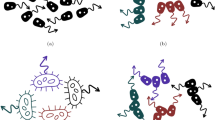Abstract
Prospective developments in computer and nanotechnology suggest that there is some possibility—perhaps as early as this century—that we will have the technological means to attempt to duplicate people. For example, it has been speculated that the psychology of individuals might be emulated on a computer platform to create a personality duplicate—an “upload.” Physical duplicates might be created by advanced nanobots tasked with creating molecule-for-molecule copies of individuals. Such possibilities are discussed in the philosophical literature as (putative) cases of “fission”: one person “splitting” into two. Many philosophers, perhaps most, reject the idea of fission, appealing to some form of a “no-branching” condition to rule out such possibilities. I argue, to the contrary, that there are good moral reasons to think that any account of personal identity that does not permit fission is deeply problematic, especially in connection with theorizing about criminal punishment. I discuss and reject David Lewis’ famous account of personal identity that invokes “multiple occupancy” to allow for branching. In contrast, I offer an account of personal identity that permits branching using the type/token distinction to help with such puzzling cases.
Similar content being viewed by others
Notes
One of the better known cases of fission discussed in the philosophical literature is the transporter case involving duplication discussed by Derek Parfit (1987).
For some skepticism about uploads and consciousness, see (Agar 2011).
I take some liberties here in lumping fission and duplication examples together. While there are important philosophical differences, for our purposes, these differences do not matter. Both types of cases suggest the need to appeal to something like a “no branching condition,’ and this is where our primary interest lies.
I use the example of Hitler here with some reluctance. As one anonymous reviewer points out, the example has the disadvantage of having “emotional trauma attached”. Despite this real concern, I wanted to use an example of a person who is (i) clearly guilty of murder with no exculpating circumstances, and (ii) where issues of deterrence are a grave concern. Other well-known examples of mass murderers, for example, Joseph Stalin or Mao Zedong, might work equally well but are also burdened by having emotional trauma attached.
Following Strawson’s naming: (Strawson 1970)
Conversely, the view here is not that we are merely types. As I have argued elsewhere, nothing on the present view suggests that it would be irrational to be attached to a particular token (Walker 2011, 2015). Hence, it does not follow from my view that the death or punishment of a token is of little or no consequence.
It may well-be that some, perhaps many, punishments should be fractionalized, e.g., the restitutive function may work well with fractionalization. Still, we have precedent for not fractionalizing serious crimes like murder and rape. Thanks to an anonymous reviewer for this point.
David Lewis discusses one version of this problem in thinking about the possibility of living extremely long lives. (Lewis 1983)
For more on the idea that a metaphysical conception of persons might not be relevant for practical purposes, see (Olson 1999). I do not subscribe to such a view. I cannot argue the point in detail here, but if there really are completely independent metaphysical and practical conceptions of persons, then there is no need to worry, for example, that punishing according to the practical conception might punish the wrong person according to the metaphysical conception. The reason is that the question of punishment attaches only to the practical conception. If the conceptions are not completely independent, then we will be owed some account of their relation. As an analogy, if there are completely independent conceptions of ontology depending on whether we are considering ontology from a metaphysical or practical point of view, then the mereological nihilist may still be entitled to half the house in a divorce settlement, even though, metaphysically speaking, she does not believe in houses. If the conceptions are not independent, then we are owed some account of how one could consistently demand half the value of a house, when metaphysically speaking, there are no such things as houses. Thanks to an anonymous reviewer for prompting this clarification.
References
Agar, N. (2011). Ray Kurzweil and uploading: just say no. Journal of Evolution and Technology, 22(1), 23–36.
Bradley, F. H. (1927). Ethical studies. 2d ed. rev. Oxford.
Drexler, K. E. (1986). Engines of creation. Anchor.
Drexler, K. E. (1992). Nanosystems: Molecular machinery, manufacturing, and computation. John Wiley & Sons, Inc.
Lewis, D. K. (1983). Philosophical papers: Volume I. Oxford university press.
Olson, E. T. (1999). The human animal: Personal identity without psychology. Oxford University Press.
Parfit, D. (1987). Reasons and persons. Oxford: Oxford University Press.
Rawls, J. (1955). Two concepts of rules. The Philosophical Review, 64(1), 3–32.
Sandberg, A. (2013). Feasibility of whole brain emulation. In Philosophy and theory of artificial intelligence (pp. 251–264). Springer.
Sandberg, A., & Boström, N. (2008). Whole brain emulation: a roadmap. Future of Humanity Institute, Oxford University. Retrieved from http://www.fhi.ox.ac.uk/Reports/2008-3.pdf. Accessed 1 Nov 2018.
Strawson, P. F. (1970). Chisholm on identity through time (a response). Language, Belief, and Metaphysics, 183–186.
Walker, M. (2011). Personal identity and uploading. Journal of Evolution and Technology, 22, 37–52
Walker, M. (2015). Death, faster-than-light travel, and Einstein. In Death and Anti-Death, Vol. 13, 1–24
Author information
Authors and Affiliations
Corresponding author
Additional information
Publisher’s Note
Springer Nature remains neutral with regard to jurisdictional claims in published maps and institutional affiliations.
Rights and permissions
About this article
Cite this article
Walker, M. Branching Is Not a Bug; It’s a Feature: Personal Identity and Legal (and Moral) Responsibility. Philos. Technol. 33, 173–190 (2020). https://doi.org/10.1007/s13347-019-00347-w
Received:
Accepted:
Published:
Issue Date:
DOI: https://doi.org/10.1007/s13347-019-00347-w




